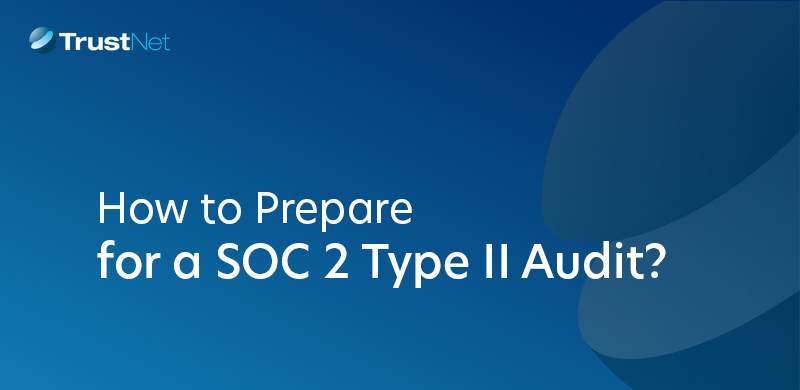
Compliance rarely figures in the startup agenda. Instead, newly launched businesses often focus on product development, market traction, and rapid growth. Infused with energy and seed capital, startups obsess about innovation and high performance as they pursue “urgent” business objectives.
This is unfortunate because the high failure rate startups face can be partly attributed to non-compliance. In fact, a CB Insights report cited regulatory and legal challenges as the fifth top reason startups fail.
Nimble by nature, startups can be prone to cut corners and are more likely to violate legal and compliance standards compared to larger companies. This is partly due to inexperience in navigating the regulatory landscape and the lack of resources and incentive to achieve compliance.
Ironically, prioritizing compliance at the onset can pave the road towards sustained and scalable business growth over the long haul. That’s because compliance helps establish best practices, build trust with all stakeholders, and attract the right customers. Compliance helps companies set up a secure environment for conducting business and a nurturing workplace that drives worker satisfaction, productivity, and loyalty.
It is not by accident that the most successful companies in the world are buoyed by a strong compliance posture.
This article aims to help your startup go beyond regulatory standards to using compliance to facilitate desired business outcomes.
What is Compliance?
Compliance refers to the organizational practice of adhering to a relevant standard, policy, regulation, or framework. It covers many areas including consumer privacy, data protection, financial regulations, accounting standards, employment laws, and mandated technical specifications.
Organizations have learned over the years to treat compliance as a unified field and an ongoing process. While the baseline incentive to achieve compliance is to remove business obstructions and avoid regulatory penalties, compliance can also drive significant competitive advantage.
Why Compliance Matters for Startups
Compliance matters because it helps establish ethical behavior, mitigate business risk, demonstrate credibility, and foster trust. A company known to follow the rules can more easily attract customers and partners.
For startups, compliance delivers benefits on multiple fronts:
- A level playing field with defined standards that apply to all competitors.
- The adoption of best practices across your organization.
- Avoidance of regulatory penalties and fines that can deal significant financial and reputational damage.
- A secure environment designed to meet customer expectations and protect their rights.
- Reduced likelihood of disruptive and damaging events such as data breaches.
- Assurance for investors and other stakeholders that your business upholds the principles of good governance.
- Improved ability to win bigger bids and expand your market.
- A stance of readiness for scalable growth over the long term.
Do not hesitate to contact us today and find out more about our special offers
Which Compliance Requirements Apply to Startups?
Every company regardless of size and line of business operates under some form of regulation. For example, organizations need to follow local commercial practices and national business laws. They need to register their business, acquire relevant permits/licenses, and follow their own internal policies. Complying with relevant legislation and self-imposed guidelines helps shield your business from liabilities and drive accountability in the workplace.
The specific compliance requirements for startups depend on several factors such as their location, customer demographic, and line of business. Regulatory standards typically cover the following areas:
- Business registration, licenses, and taxes. Companies need to register their business and obtain licenses/permits required by local, state, or federal legislation.
- Data protection and privacy. Standards such as the General Data Protection Regulation (GDPR) pertain to information security and data privacy.
- Accounting standards. Complying with widely recognized accounting frameworks such as the Generally Accepted Accounting Principles (GAAP) will make it easier for your startup to secure loans, attract additional investments, or go public when you eventually tip the scale.
- Financial regulations. Startups that process financial transactions or offer financial services can be subject to regulations such as anti-money laundering (AML) laws. All businesses that process payment card data are subject to the Payment Card Industry Data Security Standard (PCI DSS).
- Intellectual property (IP) rights. Startups should protect their creative output through patents, trademarks, and copyright. They should also conduct research to avoid infringing on the IP rights of other entities.
- Employment laws. Startups that employ workers need to follow relevant labor laws and workplace safety standards.
- Federal contracts. Only companies who can demonstrate their compliance with relevant frameworks can bid for public sector contracts. These frameworks include the Federal Risk and Authorization Management Program (FedRAMP) and the Cybersecurity Maturity Model Certification (CMMC).
You can identify all the regulations that apply to your startup via a compliance risk assessment. It is best to conduct this process with regulatory experts or managed compliance providers to ensure that you don’t miss crucial details that can lead to costly violations.
Formulating a Compliance Strategy
Compliance is not a one-time checklist. It is a continuing journey that requires a well-designed roadmap for managing costs and maximizing benefits. Here are some practical steps to consider:
- Get buy-in from leadership. Having top management involved at the outset helps ensure that compliance becomes a priority for the entire organization.
- Appoint a compliance officer. Designate a professional to manage and monitor all the startup’s compliance activities.
- Conduct a compliance audit to identify the specific compliance requirements applicable to your business.
- Develop a formal compliance plan. Have your team develop an official set of documents that establishes the policies and procedures aimed at meeting the company’s regulatory requirements.
How to Stay Compliant
Meeting regulatory standards is one thing. Maintaining compliance is another. Here are some additional tips that can help your startup sustain compliance over time.
- Document everything. Centralize the management of all your controls, policies, procedures, and compliance activities.
- Stay updated. Regulations and compliance standards evolve over time. Keep your systems aligned with changes in regulatory requirements.
- Educate your people. Train your employees in how best to maintain regulatory standards.
- Get help from experts. Compliance specialists can provide practical guidance.
Key Takeaways
Often overlooked by startups, compliance can spell the difference between failure and success. So instead of viewing it as red tape, treat compliance as a smart investment that will yield business benefits over time.
Remember, a startup that plays by the rules can more easily build trust with all stakeholders. A startup that practices good governance enhances its credibility with potential partners, creditors, and investors. A startup with a proven commitment to protecting its customers’ data has a greater likelihood of attracting more clients.
Bottomline: compliance is not a burden but a boon to all businesses, startups included.




